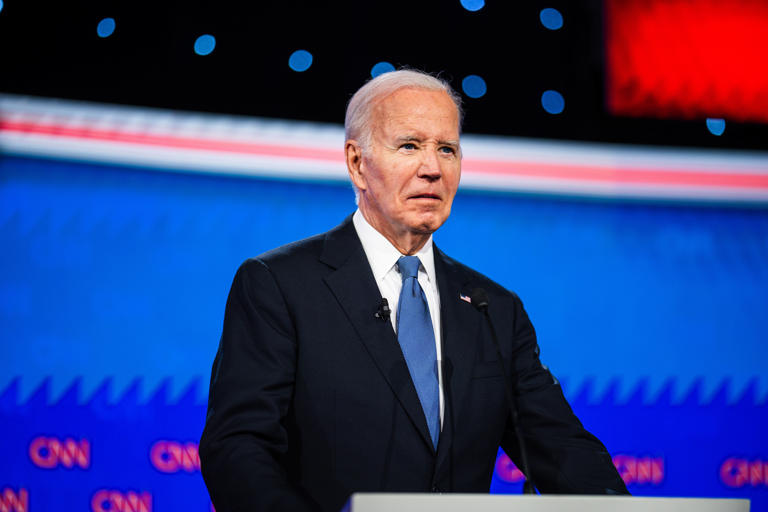The recent CNN-hosted debate in Atlanta between President Biden and former President Trump was marked by notable dynamics and exchanges that underscored their differing styles and the contentious nature of contemporary American politics.
President Biden, speaking in a raspy voice and unusually fast at times, appeared to struggle with articulation early on. His rapid speech and moments of searching for words, coupled with a notable verbal slip where he mentioned his administration “finally beat Medicare,” drew attention. These instances fueled commentary about Biden’s performance and raised questions about his communication clarity during critical exchanges.
In contrast, former President Trump, known for his assertive and combative demeanor in previous debates, initially exhibited more restraint. While he refrained from aggressive interruptions in the first half-hour, Trump maintained a level of combativeness, including attempting to speak while his microphone was muted on at least one occasion. He also seized moments to challenge Biden’s responses and questioned his opponent’s mental acuity, notably stating he didn’t understand Biden’s explanation regarding the U.S.-Mexico border.
A significant early flashpoint in the debate centered on abortion rights, a topic heightened by the Supreme Court’s 2022 decision overturning Roe v. Wade. Biden vehemently pushed back against Trump’s assertions that Democrats held extreme views on abortion, accusing Trump of lying about his party’s stance. This exchange underscored the deep divisions and high stakes surrounding reproductive rights in American politics, resonating with voters on both sides of the aisle.
Overall, the debate served as a microcosm of the polarized political climate in the United States, with each candidate emphasizing contrasting visions for the country’s future. As the presidential race progresses, these debates will likely continue to shape public perception and influence voter decisions on critical policy issues beyond abortion, such as healthcare, immigration, and economic policy.
